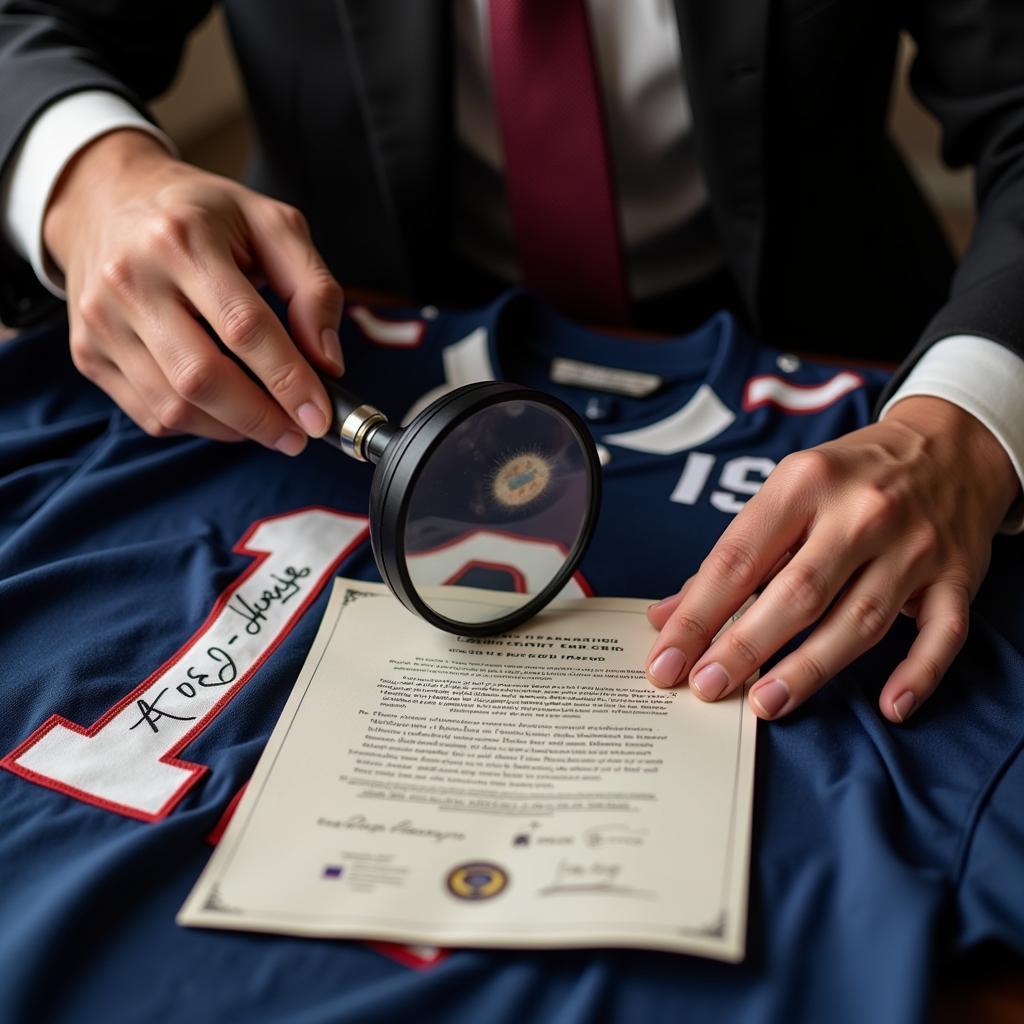An Agitating Fan can be the bane of any football match, disrupting the atmosphere and sometimes even inciting violence. Understanding what motivates these individuals is key to addressing the issue and fostering a more positive environment for everyone. From online trolls to stadium flare-ups, this article delves into the psychology behind the agitating fan and explores solutions for creating a more harmonious football experience.
What Makes a Fan “Agitating”?
Agitating fans can manifest in various ways. They’re not just the loud, obnoxious supporters; they can be subtle instigators, online trolls, or even seemingly well-behaved individuals harboring deep-seated resentment. Their actions, however, share a common thread: disrupting the enjoyment of others and negatively impacting the overall football experience. This disruption can range from incessant booing and chanting offensive slogans to engaging in physical altercations and online harassment. Identifying these behaviors is the first step in understanding and addressing the issue. What triggers a fan to become agitating? Is it purely about the game or are there underlying factors at play?
The Psychology Behind the Agitating Fan
Several psychological factors can contribute to a fan becoming agitating. Tribalism, a deep-seated sense of belonging and loyalty to one’s team, can sometimes manifest as aggression towards opposing teams and their fans. The anonymity provided by online platforms can embolden individuals to express extreme views and engage in harassing behavior they might not otherwise exhibit in person. Furthermore, the high emotional stakes of football, with its dramatic highs and lows, can amplify existing anxieties and frustrations, leading to outbursts of anger and aggression. Are these individuals simply passionate fans who have crossed a line, or are they driven by deeper psychological needs? Understanding these motivations is crucial for developing effective strategies to mitigate their negative impact.
The Role of Social Media in Amplifying Agitation
Social media has become a breeding ground for agitating fans. The anonymity and reach of these platforms allow individuals to spread negativity and incite conflict with little consequence. This online disinhibition effect can lead to a spiral of escalating aggression, further fueling the flames of fan rivalry and creating a toxic online environment. How can we harness the power of social media to promote positive fan engagement while minimizing the impact of agitating individuals? This is a challenge that requires a multifaceted approach involving platform regulation, community moderation, and education.
 Social Media and Football Fan Agitation
Social Media and Football Fan Agitation
Managing and Mitigating Agitating Fan Behavior
Addressing the issue of agitating fans requires a collaborative effort from various stakeholders, including football clubs, governing bodies, and fans themselves. Implementing clear codes of conduct, both online and offline, and enforcing consequences for violations is essential. Promoting positive fan culture through initiatives that celebrate sportsmanship and respect can help counter the negativity spread by agitating individuals. Furthermore, fostering a sense of community and belonging among fans can channel their passion in a positive direction.
The Importance of Fan Self-Policing
While official regulations and interventions are necessary, fan self-policing plays a vital role in creating a positive and enjoyable football environment. By challenging agitating behavior and promoting respectful interactions, fans can contribute significantly to fostering a culture of sportsmanship and inclusivity. What role can individual fans play in mitigating the negative impact of agitating individuals? By actively promoting positive fan behavior and calling out unacceptable actions, fans can create a more welcoming and inclusive environment for everyone.
 Positive Fan Interactions at a Football Stadium
Positive Fan Interactions at a Football Stadium
Conclusion
The agitating fan presents a complex challenge for the football community. Understanding the psychological motivations behind their behavior is key to developing effective strategies for managing and mitigating their negative impact. By implementing clear codes of conduct, promoting positive fan culture, and fostering fan self-policing, we can create a more enjoyable and inclusive football experience for everyone. Let’s work together to transform the passion of football fandom into a force for good, ensuring that the beautiful game remains a source of joy and unity.
FAQs
-
What constitutes agitating fan behavior?
Agitating behavior includes actions that disrupt the enjoyment of others, such as offensive chanting, harassment, and violence. -
How can I report an agitating fan at a stadium?
Most stadiums have designated staff or security personnel to whom you can report incidents of fan misconduct. -
What can social media platforms do to address online fan agitation?
Platforms can implement stricter content moderation policies and provide users with tools to report and block abusive behavior. -
How can I, as a fan, contribute to a more positive fan culture?
By challenging agitating behavior, promoting respectful interactions, and celebrating sportsmanship, you can contribute to a more positive fan environment. -
What are some examples of positive fan initiatives?
Fan groups can organize events that promote community engagement and celebrate the positive aspects of football fandom. -
What are the legal consequences of engaging in agitating fan behavior?
Depending on the severity of the actions, legal consequences can range from fines and stadium bans to criminal charges. -
What resources are available for fans struggling with anger management issues?
Many organizations offer anger management programs and support services that can help individuals address their aggressive tendencies.
For further assistance, please contact us: Phone: 0903426737, Email: [email protected], or visit our address: Tổ 9, Khu 6, Phường Giếng Đáy, Thành Phố Hạ Long, Giếng Đáy, Hạ Long, Quảng Ninh, Việt Nam. We have a 24/7 customer service team.





